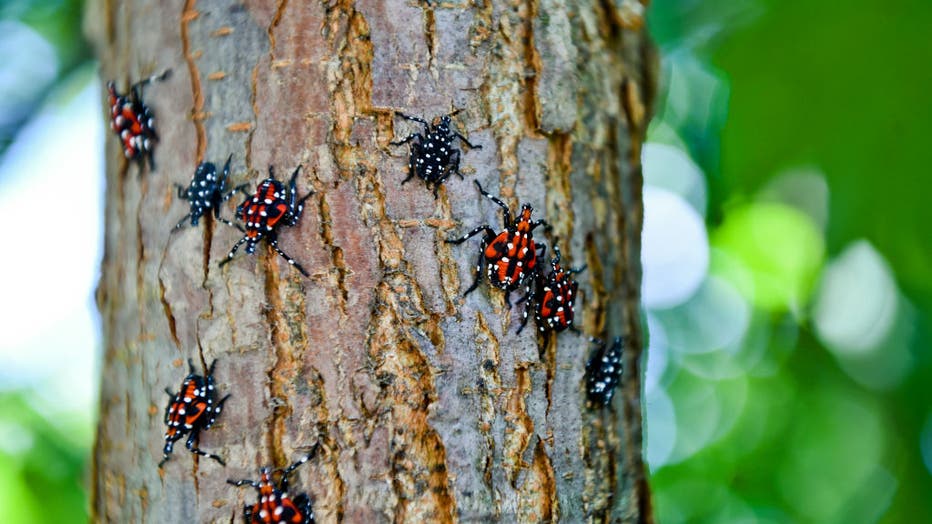Virginia researchers using dogs to help sniff out invasive spotted lanternflies

Virginia researchers using dogs to help sniff out invasive spotted lanternflies
Researchers in Virginia are experimenting with a new approach in the fight against the invasive spotted lanternfly with the help of some furry friends. FOX 5's Jennifer Delgado explains what makes dogs a good fit to help.
Researchers in Virginia are experimenting with a new approach in the fight against the invasive spotted lanternfly with the help of some furry friends.
The U.S. Department of Agriculture has given Virginia Tech researchers a $475,000 grant to study the viability of using dogs to sniff out spotted lanternfly eggs.

Spotted lanternfly nymphs are pictured near the Pagoda on Monday, July 16, 2018. Photo by Natalie Kolb (Photo By Natalie Kolb/MediaNews Group/Reading Eagle via Getty Images)
The spotted lanternfly is an invasive species affecting communities across the country. They prey upon 70-plus host plant species, causing chaos in many states where agricultural and forestry industries are essential to the economy.
Their eggs are very small and often laid on the underside of plants. As they develop into adults, the flies start feeding on the plants and stealing their nutrients. What they don’t digest, they discharge on the leaves of the plant, inviting another issue: mold.
Featured
Maryland expands spotted lanternfly quarantine to control spread of invasive species
Maryland has expanded its spotted lanternfly quarantine to control the spread of the invasive species.
So far, researchers have seen some positive results with dogs recognizing the scent and being able to spot the eggs in crops.
Researchers say as the dogs master spotted lanternfly detection, the research group will be challenging them to detect additional harmful predators.

Pest targets Virginia crops
A new pest invasion is growing in Virginia. The allium leaf miner was first spotted in 2021. Now experts are warning about the spring infestations. Bug expert professor Tom Kuhar from Virginia Tech joined us with what farmers to novice gardeners need to know.
To read more, click here.


